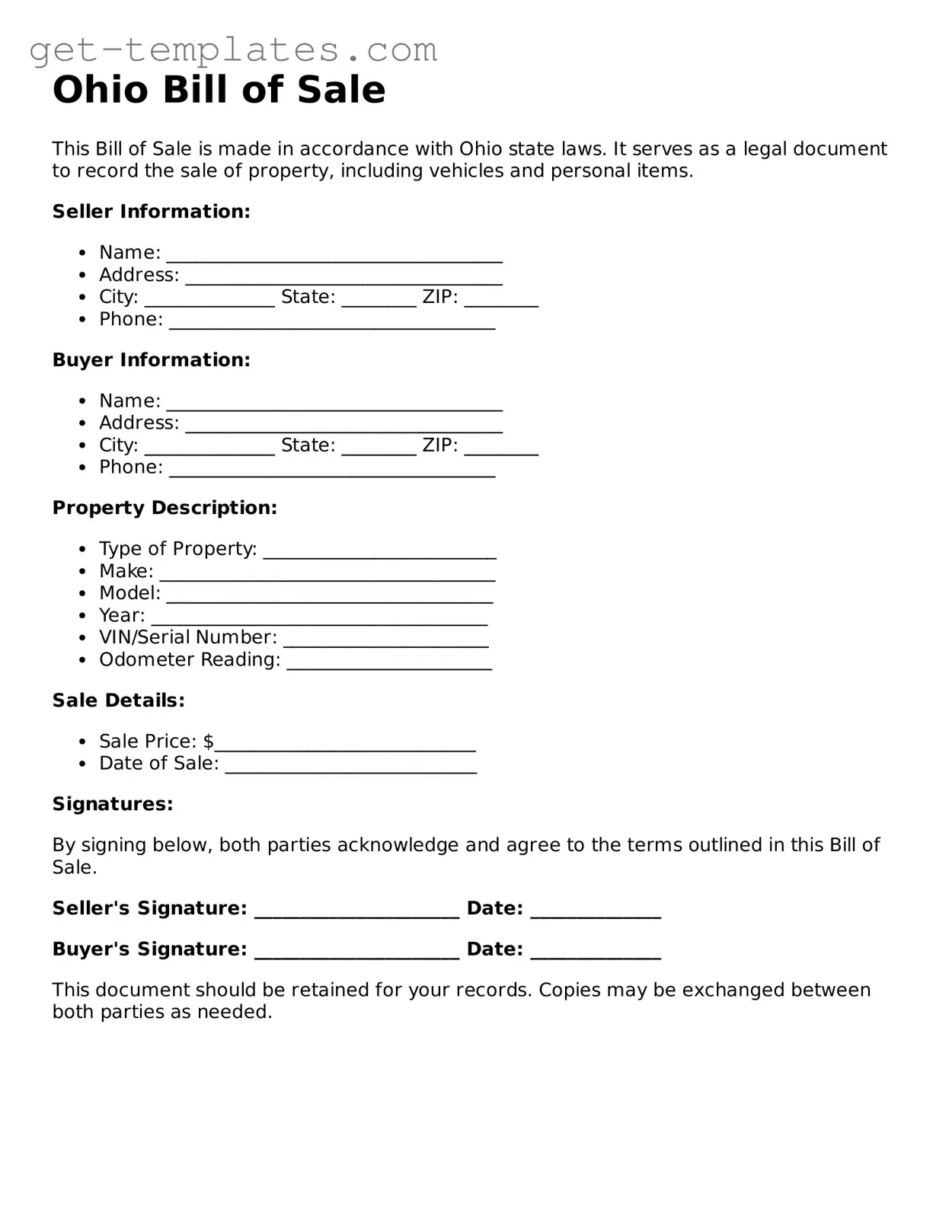Attorney-Approved Bill of Sale Document for Ohio
The Ohio Bill of Sale form is a legal document used to transfer ownership of personal property from one person to another. This form serves as proof of the transaction and includes important details about the item being sold, the buyer, and the seller. Understanding how to properly complete and use this form is essential for anyone involved in buying or selling items in Ohio.
Get Document Online

Attorney-Approved Bill of Sale Document for Ohio
Get Document Online
You’re halfway through — finish the form
Finish Bill of Sale online — edit, save, download made easy.
Get Document Online
or
⇓ PDF Form
